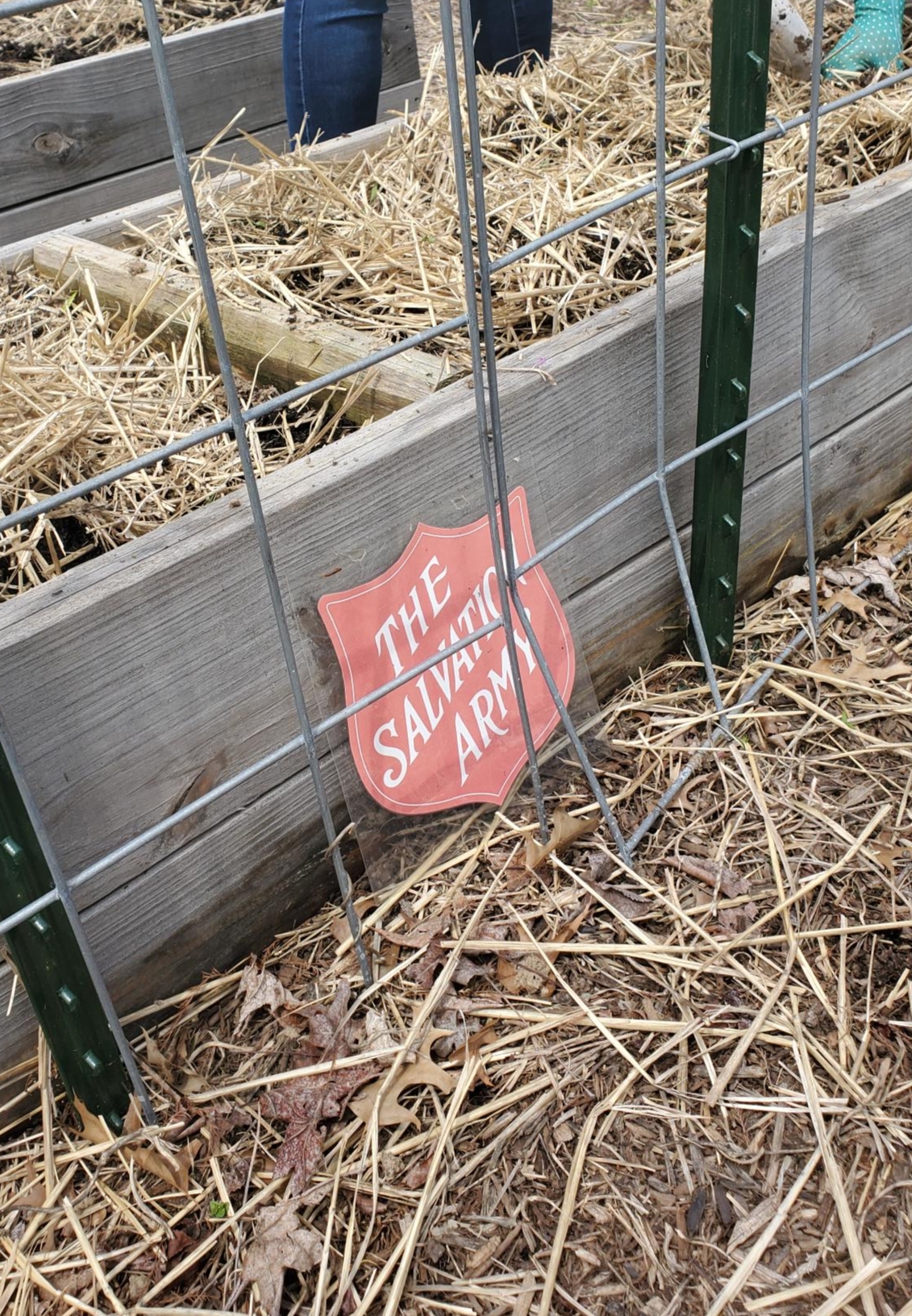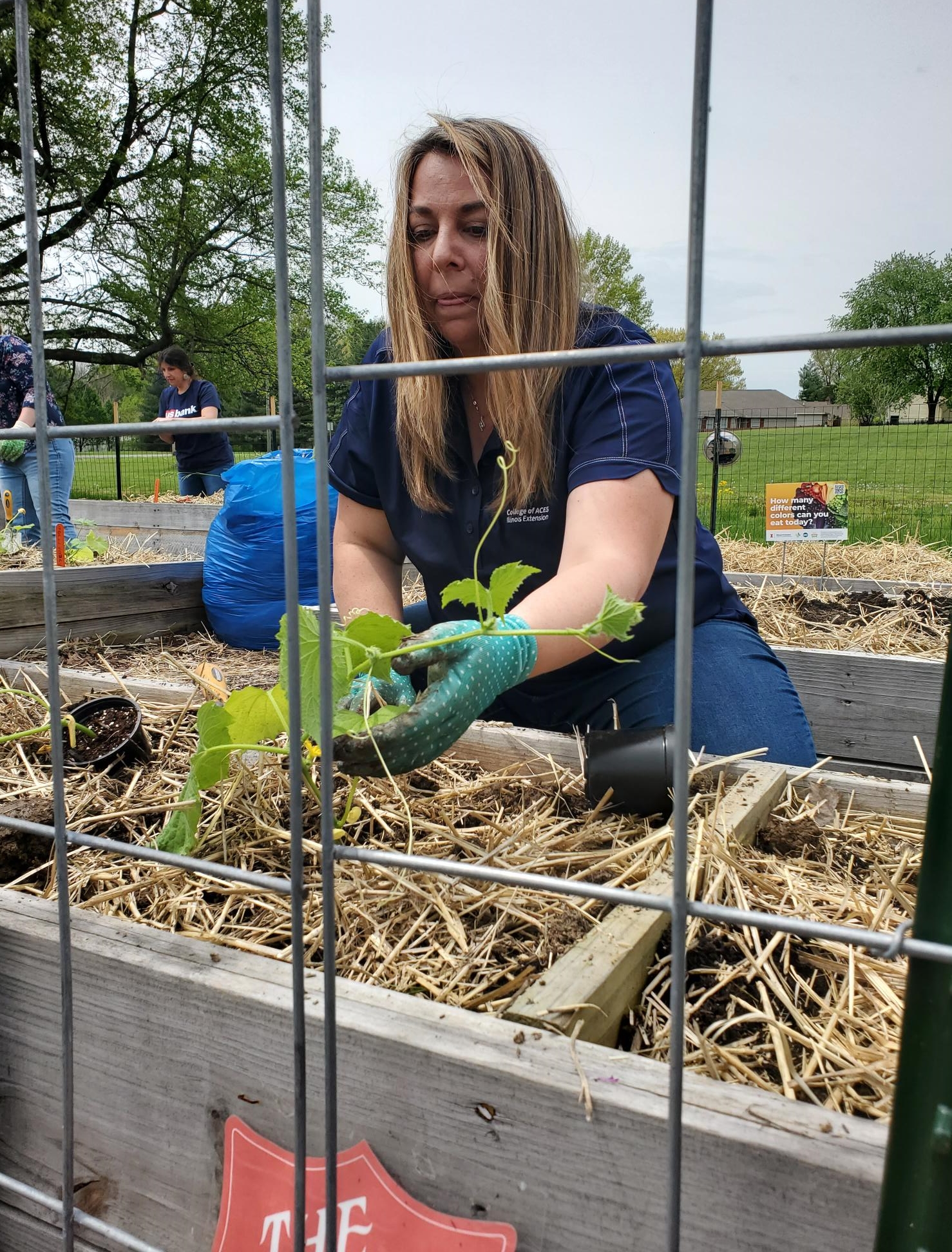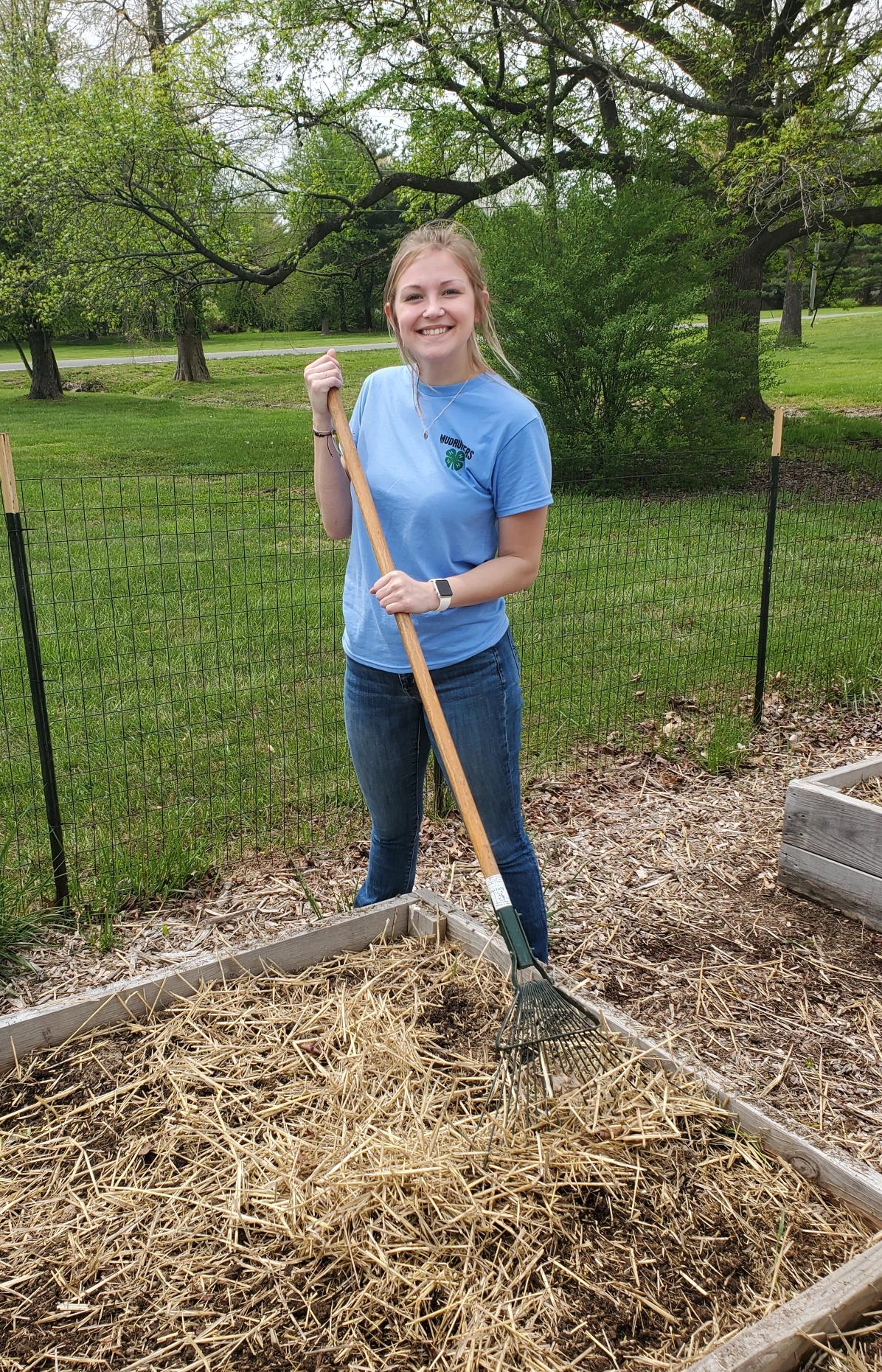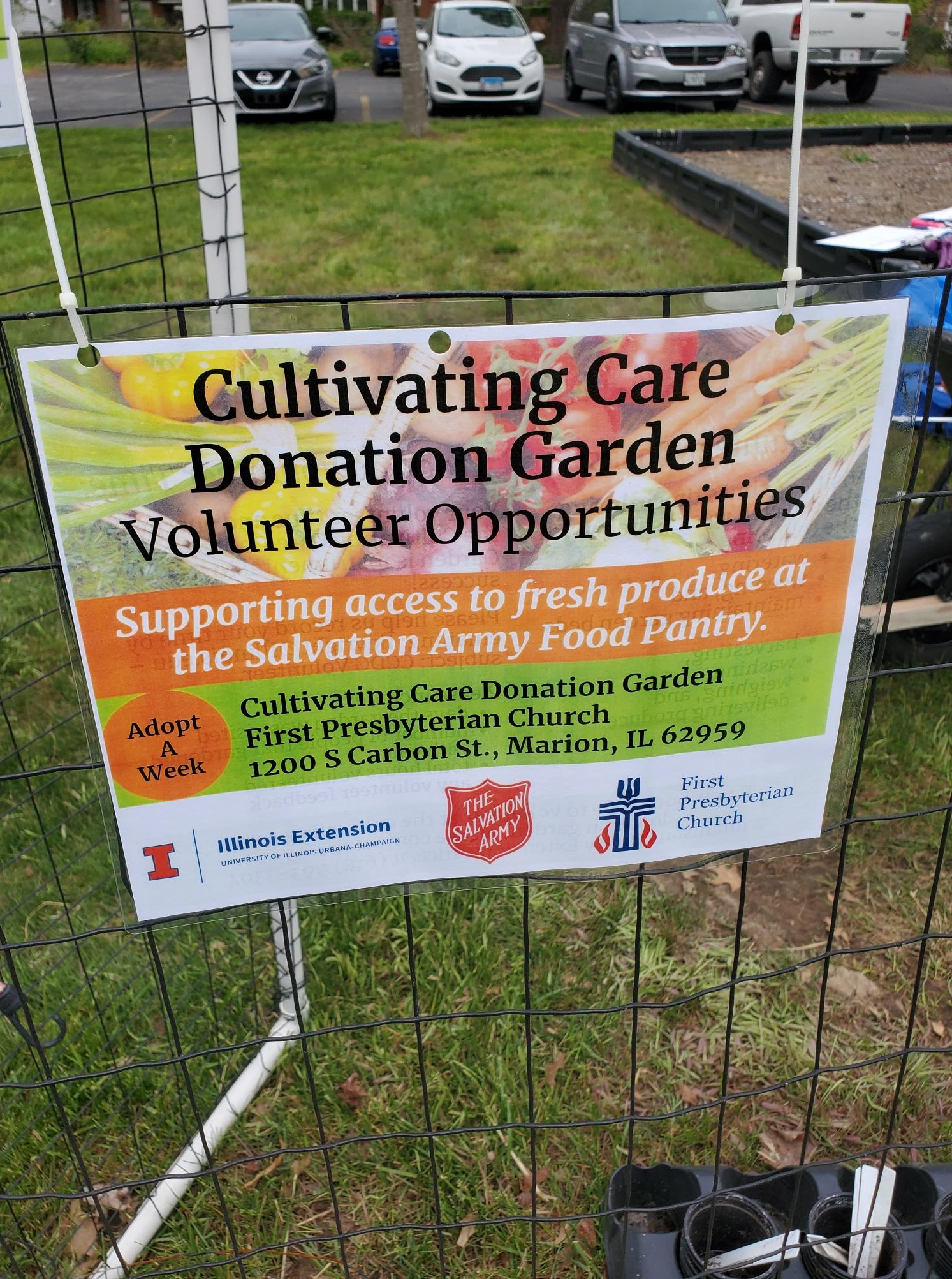SIGNS OF LIFE RETURN FOR A SECOND YEAR OF MARION’S “DREAM GARDEN”

Fresh squash, beets, and young fruit trees are cropping up on the field of the First Presbyterian Church in Marion, Ill., thanks to help from The Salvation Army in southern Illinois.
On a late April warm afternoon, the first plant of the season was underway, drawing volunteers from the University of Illinois Extension, a high school greenhouse agriculture class, churches, Walmart, and local residents, on the garden, which was full of life-producing soil.
Called in its opening last year a “dream garden” by Cami Horn, social services manager for The Salvation Army of Southern Illinois, the Marion garden is back for a second year, building on the lessons of a challenging first summer season.
“Everything looks better already,” Horn said. “We’ve reintegrated the straw and more compost material. It’s going from this hard gray clay to this darker soil with signs of life. We’ve got worms. We are excited. There are signs of life in the soil.”

The garden helps produce fresh vegetables, fruits, and herbs for the local self-sustaining food pantry, along with pollinating flowers. The pantry will be stocked weekly with food from the garden by Salvation Army staff and volunteers.
Fresh fruits and vegetables can often be more expensive than shelf foods. The garden helps fill some of that need for fresh produce, including honeydew melon, carrots, and cantaloupes, at the food pantry.
“We’re hoping to double or triple the amount of produce that we are going to harvest this season,” Horn said. “It’s a great community effort.”
Garden elements come from different places, as the fruit trees were part of a mini grant through the Southern Illinois Hospital, the seeds were donated from the University of Illinois Extension, and the land and water are donated by the First Presbyterian Church, Horn said. An initial grant from the university helped start the garden.

The church’s pastor, Wade Halva, had a long-term friendship with Horn and made room for the garden.
“Because of the pandemic, it’s been something that’s live that someone traveling the roads has seen grow and change,” Pastor Halva said. “For a lot of people who live here, it’s an indicator that days have changed over the last year. A lot of folks in southern Illinois have a history in gardening, in their family or something, or farming. There is a relationship with it that makes people happy to see it. It’s been good for mental health in that way.”

